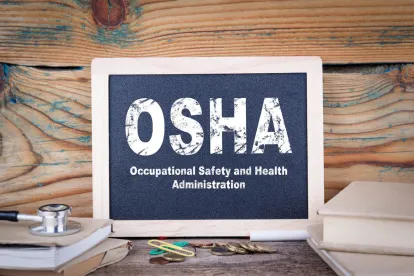The Supreme Court has granted a temporary stay of the OSHA Emergency Temporary Standard (ETS), otherwise known as the OSHA vaccine mandate. The Court ruled that OSHA had exceeded the authority delegated to it by Congress under the Occupational Safety and Health Act. In making this finding, the Court held that OSHA only has the authority to issue workplace safety standards, not broad health measures. The concurring opinion focused upon the “major questions doctrine,” which requires Congress to speak clearly when delegating authority of “vast economic and political significance” to an administrative agency.
The Court did not foreclose the possibility that OSHA had the authority to issue a narrower, more targeted ETS aimed at those industries where COVID-19 is an occupational hazard. The Court surmised that such places could include researchers who work with the virus or “particularly crowded or cramped environments.” But the Court drew the line at OSHA regulating occupational hazards, not the general public health problems that COVID-19 poses for all Americans.
The stay will remain in effect until the applicants’ petitions for review are disposed of by the United States Court of Appeals for the Sixth Circuit and the Supreme Court denies the applicants’ petition for writ of certiorari, if one is sought. If the Supreme Court grants the applicants’ petition for writ of certiorari, the stay will remain in effect until the Court issues a judgment. Practically speaking, this means the stay will remain in effect until the Supreme Court says otherwise.
The problems with ETS compliance were significant. As just one example, the rule did not require employees to pay for the tests unless another law so required, but numerous state laws arguably do require an employer to pay for tests. And the recent HHS rules require health plans to pay for up to 8 tests a month, none of which can be used for the mandate. As such, large self-insured employers could have ended up paying for 12 tests a month – 8 through the health plan and 4 for the ETS. In short, the ETS theoretically incentivized employees to be vaccinated to avoid having to pay for the tests themselves. Yet, to avoid legal risk, employers were facing paying for the tests and the time hourly workers spent getting tested.
However, the ETS does contain preemption language that would have assisted with narrowing the legal issues at the state level regarding vaccination mandates and reasonable accommodation. With the ETS now stayed for the foreseeable future, employers do not have a preemption argument and will need to comply with each of these states’ laws and their varying restrictions on vaccination mandates. Employers also should take heed that CDC and OSHA guidance is once again enforceable through the General Duty Clause.





 />i
/>i

